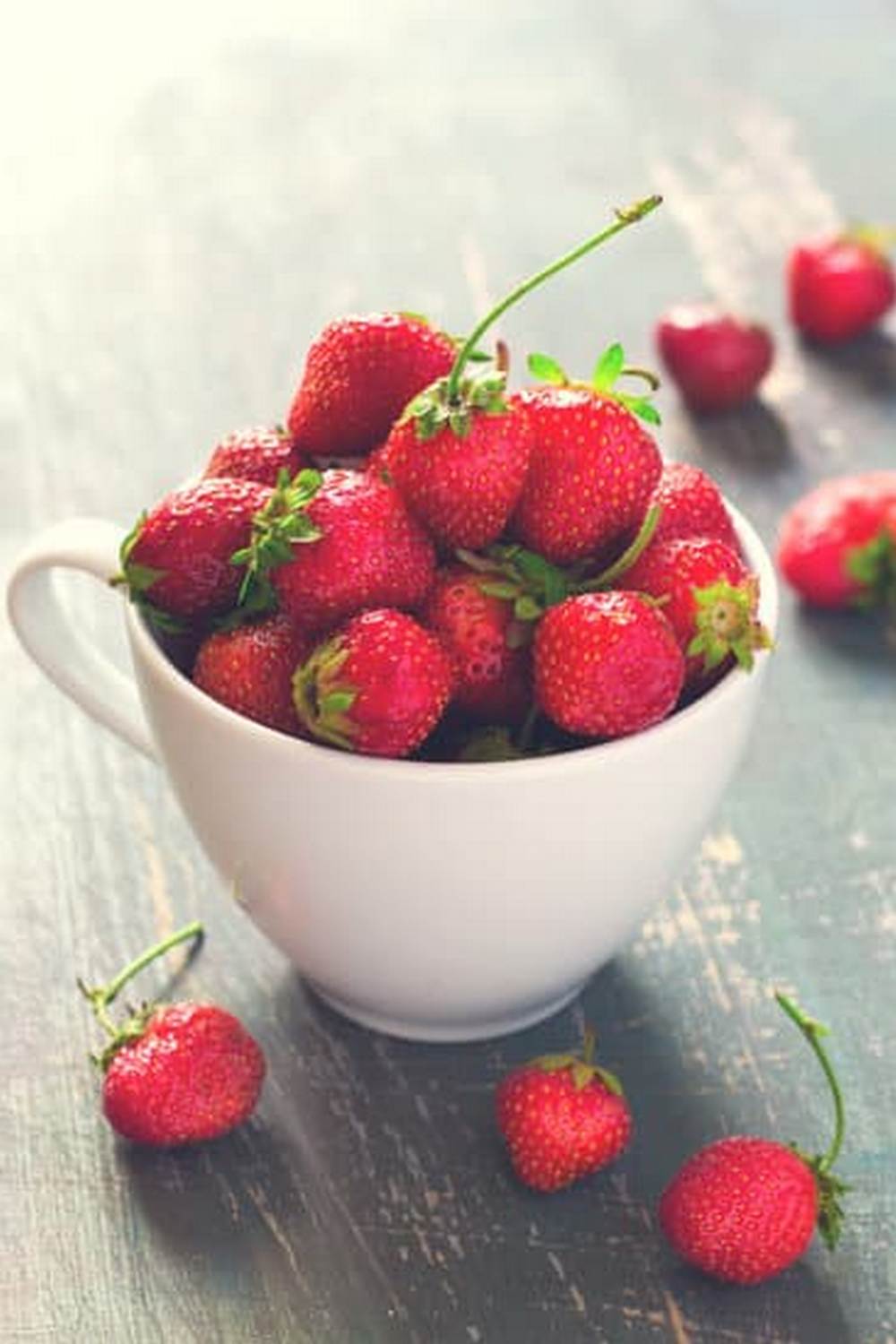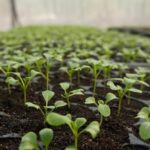Can Triazicide be used in vegetable gardens? Triazicide is a widely-used pesticide known for its effectiveness in controlling various pests. However, when it comes to using this chemical in vegetable gardens, there are certain factors to consider. Understanding the benefits, risks, and proper application of Triazicide is crucial for maintaining a healthy garden while ensuring the safety of your produce.
Pesticides play a significant role in agriculture by protecting crops from harmful insects and diseases. Triazicide is one such pesticide that has gained popularity for its broad spectrum control against a variety of pests. Despite its effectiveness, some gardeners may have concerns about using Triazicide in vegetable gardens due to potential risks associated with chemicals.
When used correctly, Triazicide can provide several benefits in vegetable gardens. From protecting plants against destructive pests to improving overall yield and quality of produce, this pesticide can be a valuable tool for gardeners. However, it is essential to weigh these benefits against the potential risks and consider alternative methods of pest control for sustainable gardening practices.
Understanding Pesticides and Their Uses in Agriculture
What Is Triazicide?
Triazicide is a popular insecticide that is commonly used in agriculture to control a variety of pests that can damage crops. It contains the active ingredient gamma-cyhalothrin, which is effective against a wide range of insects such as aphids, beetles, caterpillars, and more. Triazicide comes in various formulations including ready-to-use sprays, concentrates, and granules, making it versatile for different applications.
Can Triazicide Be Used in Vegetable Gardens?
Many gardeners wonder if triazicide can be safely used in vegetable gardens. The answer is yes, triazicide can be used in vegetable gardens to effectively control insects that may threaten the health of your plants. However, it is crucial to follow the proper application guidelines and safety precautions to minimize any potential risks associated with using pesticides in edible plant areas.
The Role of Pesticides in Agriculture
Pesticides play a significant role in modern agriculture by protecting crops from harmful pests that can reduce yields and quality. While there has been growing concern about the impact of pesticides on the environment and human health, when used responsibly and according to label instructions, pesticides like triazicide can help farmers and gardeners manage pest infestations effectively. Understanding how to use pesticides safely and knowing when to apply them are essential for maintaining healthy crops.
Benefits of Using Triazicide in Vegetable Gardens
Triazicide is a widely used pesticide that belongs to the chemical class of neonicotinoids. It is commonly used in vegetable gardens to control a variety of pests such as aphids, caterpillars, beetles, and thrips. One of the key benefits of using Triazicide in vegetable gardens is its effectiveness in quickly eliminating harmful insects that can damage crops. This can help protect the overall health and yield of the vegetable garden.
Furthermore, Triazicide is known for its versatility in controlling a wide range of pests, making it a valuable tool for vegetable gardeners looking to protect their plants from infestations. Whether dealing with chewing insects that consume plant tissue or sucking insects that feed on plant juices, Triazicide has shown effectiveness in targeting and eliminating these pests. Additionally, Triazicide has a residual effect which means it continues to provide protection against pests for an extended period after application.
Despite its efficacy, there are some considerations to keep in mind when using Triazicide in vegetable gardens. It is important to follow proper application guidelines to ensure the safety of both the crops and beneficial insects like bees. Overusing or misapplying Triazicide can lead to negative consequences such as pesticide resistance in pests or harm to non-target organisms. Therefore, it is recommended to use Triazicide judiciously and according to label instructions to maximize its benefits while minimizing risks.
| Benefits | Using Triazicide |
|---|---|
| Effectively eliminates harmful insects | Versatility in controlling a wide range of pests |
| Quick action in protecting plant health and yield | Residual effect for extended pest protection |
Potential Risks and Concerns of Using Triazicide
While Triazicide can be an effective tool for controlling pests in vegetable gardens, it is important to consider the potential risks and concerns associated with its use. One of the main concerns regarding Triazicide is its toxicity to beneficial insects such as bees and other pollinators.
The active ingredients in Triazicide can linger in the environment and may harm these important creatures that play a vital role in the pollination process. Additionally, overuse of Triazicide can lead to pesticide resistance in pest populations, making it less effective over time.
To minimize the risks associated with using Triazicide in vegetable gardens, proper application techniques and safety guidelines should be followed. Always read and follow the instructions on the product label carefully before applying Triazicide. It is important to wear protective clothing, such as gloves and a mask, when handling and applying pesticides.
Avoid spraying during windy conditions to prevent drift onto non-target areas or plants. Additionally, store Triazicide properly in a secure location away from children and pets to prevent accidental ingestion or exposure.
Furthermore, another concern related to using Triazicide in vegetable gardens is the potential for residue contamination on produce. While Triazicide is labeled for use on certain crops, it is essential to adhere to the pre-harvest intervals specified on the product label to ensure that residues have had adequate time to break down before consuming vegetables.
Washing produce thoroughly before consumption can also help reduce any pesticide residues that can triazicide be used in vegetable gardens may remain on the surface. Considering these risks and taking appropriate precautions can triazicide be used in vegetable gardens help minimize adverse effects on both human health and the environment.
- Wear protective clothing like gloves and mask when handling pesticides
- Avoid spraying during windy conditions
- Properly store Triazicide away from children and pets
Alternatives to Triazicide for Vegetable Gardens
When considering pest control options for vegetable gardens, it is essential to explore alternatives to Triazicide. While Triazicide is a popular insecticide that many gardeners rely on for managing pests, there are concerns about its potential impact on human health and the environment. Fortunately, there are several effective alternatives that can be used to protect your vegetable crops without the use of chemical pesticides.
Organic Pest Control Methods
One of the main alternatives to using Triazicide in vegetable gardens is turning to organic pest control methods. This involves using natural substances and biological solutions to manage pests without introducing harmful chemicals into the garden ecosystem. Examples include introducing beneficial insects like ladybugs or lacewings to feed on pest populations, using neem oil as a natural pesticide, or employing physical barriers like row covers to protect plants from invasive insects.
Cultural Practices
In addition to organic methods, implementing cultural practices can also help reduce pest infestations in vegetable gardens. Simple strategies such as crop rotation, intercropping, and proper spacing between plants can disrupt the life cycle of pests and prevent them from establishing a strong presence in your garden. By creating a diverse and healthy ecosystem in your garden, you
Natural Predators
Another alternative approach is encouraging natural predators in your garden to keep pest populations in check. Predatory insects like spiders, praying mantises, and ground beetles can help control common vegetable pests without the need for synthetic pesticides. By providing habitats and food sources for these beneficial creatures, you can create a balanced environment where pest pressure is naturally regulated. This approach not only reduces the reliance on chemical treatments but also promotes biodiversity and ecological resilience in your vegetable garden.
Proper Application and Safety Guidelines for Triazicide
When considering the use of Triazicide in vegetable gardens, it is crucial to understand the proper application techniques and safety guidelines to ensure effective pest control while minimizing potential risks. Triazicide is a broad-spectrum insecticide that targets a variety of pests commonly found in vegetable crops, such as aphids, caterpillars, beetles, and mites. Before applying Triazicide in your garden, carefully read and follow the manufacturer’s instructions on the product label.
One important safety measure when using Triazicide in vegetable gardens is to wear appropriate personal protective equipment (PPE) during application. This may include long-sleeved shirts, long pants, chemical-resistant gloves, closed-toe shoes, and goggles to protect your skin, eyes, and respiratory system from exposure to the pesticide. Additionally, always wash your hands thoroughly with soap and water after handling Triazicide or any other chemical products.
It is also essential to apply Triazicide at the recommended rates and times to achieve maximum effectiveness while minimizing environmental impact. Over-application of pesticides can lead to pesticide residue buildup on vegetables or soil, posing health risks to humans and beneficial insects.
Always adhere to the waiting period specified on the product label before harvesting any vegetables treated with Triazicide. With proper application techniques and adherence to safety guidelines, Triazicide can be a valuable tool in managing pests in vegetable gardens.
| Proper Application | Safety Guidelines |
|---|---|
| Follow manufacturer’s instructions | Wear appropriate PPE |
| Apply at recommended rates/times | Wash hands after handling |
| Adhere to waiting period before harvest | Avoid over-application |
Common Vegetable Pests That Triazicide Can Effectively Control
When it comes to protecting your vegetable garden from pesky pests, Triazicide can be a valuable tool in your arsenal. This powerful insecticide targets a wide range of common garden pests and effectively controls their populations. Here are some of the most prevalent vegetable pests that Triazicide can help manage:
- Aphids: These tiny insects suck sap from plant leaves, causing wilting and stunted growth. Triazicide can effectively eliminate aphid populations on vegetables like tomatoes, peppers, and lettuce.
- Caterpillars: Caterpillars can quickly devour the foliage of your vegetable plants if left unchecked. Triazicide is an effective solution for controlling caterpillars on crops such as cabbage, broccoli, and spinach.
- Beetles: Beetles, including Colorado potato beetles and flea beetles, can cause extensive damage to vegetable plants. Triazicide is known for its efficacy in managing beetle infestations in gardens.
In addition to these common pests, Triazicide can also target other harmful insects like thrips, mites, and whiteflies that pose a threat to your vegetable crops. By incorporating Triazicide into your pest management strategy, you can triazicide be used in vegetable gardens with confidence knowing that you are effectively combatting harmful pests.
To make the most out of Triazicide’s pest control capabilities in your vegetable garden, it is essential to follow proper application guidelines and safety precautions. Understanding which pests this insecticide targets will allow you to tailor your treatment plan accordingly and maximize its effectiveness in safeguarding your precious vegetables from damage.
Tips for Maximizing the Effectiveness of Triazicide in Vegetable Gardens
In conclusion, while Triazicide can indeed be used in vegetable gardens to effectively control common pests, it is important to follow proper application and safety guidelines to ensure the best results without compromising the health of your plants or the environment. By understanding how pesticides like Triazicide work and incorporating them strategically into an integrated pest management plan, gardeners can benefit from their effectiveness while minimizing potential risks.
Furthermore, exploring alternatives to Triazicide for vegetable gardens is also recommended. Organic and natural pest control methods can offer effective solutions without the potential harmful effects associated with synthetic pesticides. Additionally, rotating different types of pesticides or incorporating beneficial insects can help prevent pest resistance and maintain a healthy balance in the garden ecosystem.
Overall, when using Triazicide or any pesticide in vegetable gardens, proper care and consideration should be taken to ensure the safety of both humans and the environment. By staying informed about the benefits, risks, and alternatives available, gardeners
Frequently Asked Questions
Can You Use Spectracide Triazicide in a Vegetable Garden?
Spectracide Triazicide can be used in a vegetable garden, but it is important to follow the instructions on the label carefully. It is crucial to avoid using it on edible parts of the plants or on any vegetables that are not listed as safe for treatment.
Can I Use Insecticide in My Vegetable Garden?
Using insecticides in a vegetable garden can be done if necessary, but caution must be exercised. It is important to choose an insecticide approved for use on edible plants and to follow the application instructions diligently. Additionally, consider organic alternatives whenever possible to minimize harm to beneficial insects and the environment.
Can Triazicide Be Used on Squash?
Triazicide can typically be used on squash plants, but it is crucial to check the product label first to ensure that squash is listed as a plant that can be treated safely with this insecticide. Following the guidelines provided will help protect your plants while effectively managing pests without causing harm to yourself or the environment.

If you’re looking to get into vegetable gardening, or are just looking for some tips on how to make your current garden better, then you’ve come to the right place! My name is Ethel and I have been gardening for years. In this blog, I’m going to share with you some of my best tips on how to create a successful vegetable garden.





